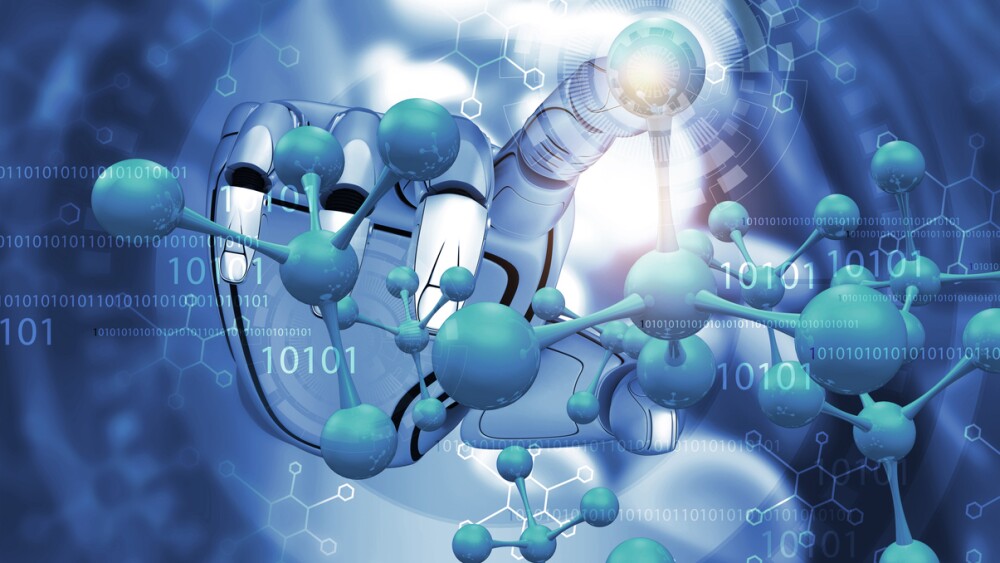PHILADELPHIA, June 4 /PRNewswire-FirstCall/ -- GlaxoSmithKline today announced that interim results from a clinical trial in patients treated with GSK's investigational MAGE-A3 Antigen Specific Cancer Immunotherapeutic (ASCI) in Non-Small Cell Lung Cancer (NSCLC) resulted in a one third reduction in relative risk of cancer recurrence following surgery, compared to placebo.
MAGE-A3 ASCI is an investigational drug and it is not approved for use in any indication in any country at this time.
Formerly known as pharmaccines or therapeutic cancer vaccines, GSK's ASCIs aim at stimulating the patient's own immune response to attack cancer cells in a highly specific manner. This class of novel compounds is based on specific tumor antigens delivered as recombinant proteins in combination with innovative proprietary adjuvant systems specifically designed to ensure ASCIs induce a strong anti-tumor activity.
In this proof-of-concept Phase II clinical trial, all the participating patients had tumors expressing a tumor-specific antigen known as MAGE-A3, which is present in approximately 35 percent to 50 percent of early NSCLC.(1) Although the observed 33 percent reduction in relative risk of cancer recurrence did not meet statistical significance at this interim stage (p=0.121), the trend is very encouraging and warrants continued investigation.
These promising results from an interim analysis presented today at the 2006 American Society of Clinical Oncology (ASCO) annual meeting in Atlanta, GA, [Abstract No: 7019] represent the first proof-of-concept for activity for an ASCI approach in a double-blind, placebo-controlled clinical trial in early NSCLC.
The most commonly reported adverse events were mild local or systemic reactions observed within the 24 hours of injection. Out of 182 patients, 2 patients were withdrawn from the clinical trial due to adverse events possibly related to the MAGE-A3 treatment.
"This trial demonstrates the feasibility of developing novel cancer immunotherapies that with continuing research may expand into a new approach to cancer treatment," said Paul A. Bunn Jr., M.D., Grohne/Stapp Endowed Professor of Oncology, Professor of Medicine and Director of the University of Colorado Cancer Center, Denver, Colorado. "It represents an important step not only in finding better therapy for the most common type of lung cancer but also in exploring the broader potential of these compounds."
The study is a multi-center, randomized, double-blind, placebo-controlled Phase II trial evaluating MAGE-A3 ASCI as adjuvant therapy in patients with completely resected MAGE-A3 positive, stage IB or II NSCLC. The study randomized 182 patients to receive either MAGE-A3 ASCI or placebo.
This pre-planned interim analysis was performed at a median follow-up of 21 months. At this time, 37 of the 122 patients receiving MAGE-A3 ASCI had relapsed (30.3%); compared to 25 of the 60 patients receiving placebo (41.7%). Using a Cox regression model to adjust for the fact that patients in the different arms were enrolled in the study at different times, there was a 33 percent relative reduction in risk of cancer recurrence in patients treated with MAGE-A3 ASCI compared to placebo.(2)
"These first results obtained with our MAGE-A3 ASCI reinforce our belief in the potential application of the ASCI approach in the treatment of cancer," said Jean Stephenne, President of GSK Biologicals. "Today's results demonstrate GSK's commitment to becoming a leader in this exciting new field of medicine based on our unique expertise in recombinant protein and adjuvant technology. In addition to MAGE-A3, GSK is building a broad portfolio of tumor antigens and by using the same approach, we are confident in our ability to develop a rich pipeline of ASCIs targeting in a highly specific manner many different types of cancers."
Vincent Brichard, Director Clinical Development Cancer Program at GSK Biologicals commented: "We are very encouraged by these results as they validate years of research conducted by GSK Biologicals and others into the ways to harness the immune system against cancer."
The full analysis will focus on time to recurrence, disease-free survival, overall survival, lung-cancer-related death rate as well as safety and immunogenicity. Final results are expected to be available later this year. Phase III trials are planned to begin in early 2007.
About Non-Small Cell Lung Cancer
According to the World Health Organization (WHO), more than 1.2 million new cases of lung and bronchus cancer are diagnosed each year worldwide, and approximately 1.1 million deaths occur annually around the world.(3)
The American Cancer Society estimates that approximately 174,000 new cases of lung and bronchus cancer and more than 162,000 related deaths will occur in the United States in 2006. It is the leading cause of cancer death in this country in both men and women.(4)
Non-Small Cell Lung Cancer is the most common form of lung cancer, accounting for about 80 to 85 percent of all lung cancers.(5)
About GSK ASCIs and MAGE-A3 ASCI
GSK's ASCIs represent a class of novel compounds that are based on tumor antigens presented to the patient's immune system as recombinant proteins in combination with a GSK proprietary adjuvant system. ASCIs are meant to trigger a specific immune response against tumor cells expressing these proteins, rallying antibodies and T-cells to recognize and attack the cancer cells in a highly specific manner and eventually eliminate them.
This approach primarily aims at reducing the risk of tumor recurrence following surgery. It could also be used to impact tumor growth in early metastatic setting.
The highly targeted mode of action of GSK ASCIs against specific cancer antigens expressed by tumor cells may avoid harming the normal tissue. In addition, it may allow selection of patients eligible for the treatment depending on the expression of the tumor antigens. This may help oncologists to select patient populations most likely to respond to the treatment.
MAGE-A3 ASCI contains a purified recombinant MAGE-A3 protein combined with GSK's proprietary adjuvant. MAGE-A3 is a tumor-specific antigen that is expressed in a large variety of cancers, including Non-Small-Cell Lung Cancer, with no expression by normal cells. Approximately 35 percent to 50 percent of early NSCLC express MAGE-A3.1
MAGE-A3 antigen has been in-licensed by GSK from the Ludwig Institute for Cancer Research, the largest international academic institute dedicated to understanding and controlling cancer.
About GlaxoSmithKline and GlaxoSmithKline Biologicals
GSK Biologicals (GSK Bio), one of the world's leading vaccine manufacturers, is headquartered in Rixensart, Belgium, where the majority of GlaxoSmithKline's activities in the field of vaccine research, development and production are conducted. GSK Bio employs more than 1,500 scientists, who are devoted to discovering new vaccines and developing more cost-effective and convenient combination products to prevent infections that cause serious medical problems worldwide. GSK Bio is also developing innovative immunotherapy compounds to treat cancer patients.
In 2005, GSK Bio distributed more than 1.2 billion doses of vaccines to 165 countries in both the developed and the developing world, an average of more than 3 million doses per day.
GlaxoSmithKline -- one of the world's leading research-based pharmaceutical and healthcare companies -- is committed to improving the quality of human life by enabling people to do more, feel better and live longer. For company information please visit http://www.gsk.com.
GSK cautionary statement regarding forward-looking statements
Under the safe harbor provisions of the US Private Securities Litigation Reform Act of 1995, the company cautions investors that any forward-looking statements or projections made by the company, including those made in this Announcement, are subject to risks and uncertainties that may cause actual results to differ materially from those projected. Factors that may affect the Group's operations are described under "Risk Factors" in the Operating and Financial Review and Prospects in the company's Annual Report on Form 20-F for 2005.
References 1. Data on file, GSK Biologicals 2. Cox regression analysis, Hazard ratio=0.67. Primary study endpoint was time to recurrence. 3. World Health Organization Cancer Report, WHO. Globocan 2002: Cancer Incidence, Mortality, and Prevalence Worldwide, International Association of Cancer Registries. http://www-dep.iarc.fr (Date of access: May 26, 2006) 4. American Cancer Society Website: http://www.cancer.org/downloads/STT/CAFF2006PWSecured.pdf (Date of access: May 26, 2006) 5. American Cancer Society Website: http://www.cancer.org/docroot/CRI/content/CRI_2_2_1x_What_Is_Non- small_Cell_Lung_Cancer.asp?sitearea= (Date of access: May 26, 2006)
GlaxoSmithKlineCONTACT: UK Media: Philip Thomson, Alice Hunt, Gwenan Evans, +44 (0)208047 5502, US Media: Nancy Pekarek, +1-215-751-7709, Mary Anne Rhyne,+1-919-483-2839, Patricia Seif, +1-215-751-7709, European Analyst-Investor: Duncan Learmouth, +44 (0)20 8047 5540, Anita Kidgell, +44 (0)208047 5542, Jen Hill +44 (0)20 8047 5543, David Mawdsley, +44 (0)20 80475564, or US Analyst-Investor: Frank Murdolo, +1-215-751-7002, Tom Curry,+1-215-751-5419, all of GlaxoSmithKline; or Alice Grasset of GSKBiologicals, +32 475 30 90 20




